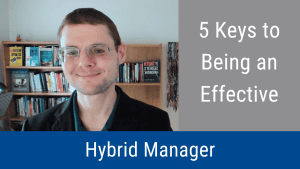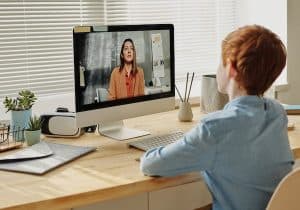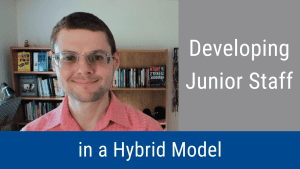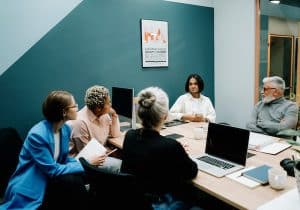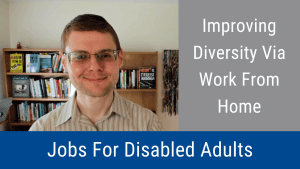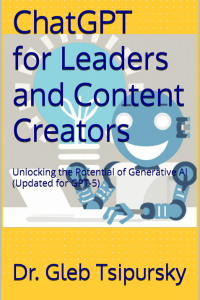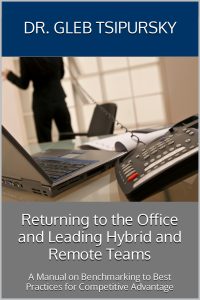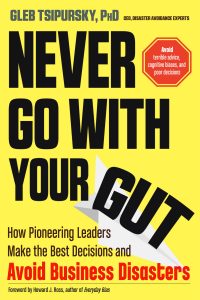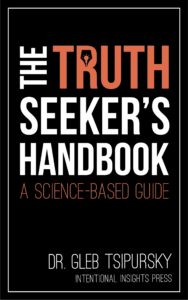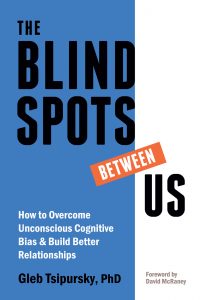Unlock growth by fostering a strong company culture through the transformative power of human connection in celebration, work, and development
Intentionality, trust, autonomy, connection, and accountability represent the five keys to turning a traditional office-centric manager into an effective hybrid manager. That’s the key take-away message of this episode of the Wise Decision Maker Show, which describes the 5 keys to being an effective hybrid manager.
Embrace flexibility in return-to-office policies to mitigate legal risks, foster inclusivity, and build a resilient, engaged workforce.
AI empowers educators by revolutionizing content creation, freeing time for inspiration, customization, and fostering a mindset shift in education
Successful return-to-office strategies hinge on collaborative leadership, embracing diverse perspectives, and fostering mutual understanding
A successful hybrid model depends on effective integration of junior staff. To do so, they should come to the office more often than senior staff to get on-the-job training and mentoring. That’s the key take-away message of this episode of the Wise Decision Maker Show, which describes how to develop junior staff in a hybrid model.
Successful remote work demands intentional investment in building a strong, inclusive culture among distributed teams, beyond just using collaboration tools.
Unproductive employees are like hidden pebbles in your business shoes. Discover the staggering costs, hidden impacts, and strategies to boost productivity and propel your organization to new heights
According to a new survey from The Conference Board, hybrid work policy has stabilized. Despite the headlines about Disney and Starbucks forcing employees to return to the office, we should expect most companies to not change their policies.
The marketing world is being transformed by the rise of generative AI. As this technology improves, it allows marketers to be more efficient, creative and data-driven. I recently spoke with Ben Dutter, Senior Vice President of Strategy at Power Digital, to get insight on how generative AI is impacting marketing. Generative AI Boosts Paid Ad…
The four key challenges of remote work layoffs are impersonal emails, legal requirements, returning equipment, and difficulties assessing performance.
Effective RTO strategies blend data and empathy, prioritizing employee preferences and transparency, ensuring retention and operational success.
Empower employees to co-create their hybrid work schedules to foster engagement, retention, and productivity, ensuring a harmonious and effective work environment.
Employers who are forcing their employees back to the office are trying to reassert control over their workers, but doing so often backfires, because workers are using worker power and unions to protect their interests.
Embracing flexible hybrid work and structured mentoring programs is the key to increasing productivity and employee satisfaction, while abandoning the outdated and ineffective practice of forcing employees back to the office.
Brain training enhances uniquely human skills, fostering adaptability, mental well-being, and collaboration in our technology-driven world.
Leaders often believe false media headlines about people working two remote jobs, despite the evidence showing that the percentage of workers with multiple jobs is currently at a historic low.
Embrace the military mindset: data-driven realism, relentless work ethic, adaptability, and tech integration for entrepreneurial triumph.
Global outsourcing is the future of work. Success requires trust-building, adaptive management, infrastructure investment, and overcoming barriers. Embracing diversity and addressing biases leads to competitive advantage.
Governments are leading the way in embracing flexible work, emphasizing its importance for employee satisfaction, productivity, and inclusivity. Private companies must adapt to this shift to attract top talent and stay relevant in a changing labor market. Embracing flexibility is not just a perk but a necessity for the future of work
The top leadership should establish clear success metrics for an organization’s hybrid work model, which need to be measured quarterly to ensure the model is effective and meets the organization’s needs. That’s the key take-away message of this episode of the Wise Decision Maker Show, which describes how to measure the success of your hybrid work model.
Telehealth, exemplified by MyClearStep, is revolutionizing eating disorder treatment with trust-building technology and remote monitoring
Work from home jobs for disabled people enabled by COVID resulted in employment rates for those with disabilities rising to the highest level in a decade, and companies need to provide such jobs to take advantage of a diverse talent pool. That’s the key take-away message of this episode of the Wise Decision Maker Show, which describes how companies can improve diversity by providing remote jobs for disabled adults.
Adapting to hybrid work demands HR strategies that address challenges while fostering a sense of belonging and flexibility.
To optimize hybrid work arrangements, use the Big Five personality test to measure team member personality and have those high in Conscientiousness, Introversion, Openness to Experience, and Emotional Stability spend more time working from home. That’s the key take-away message of this episode of the Wise Decision Maker Show, which describes the personality types that do best in hybrid work.
Protect yourself from decision disasters by getting our free Wise Decision Maker Course, which includes 8 weekly video-based modules. As a bonus, you'll receive a free copy of our Assessment on Dangerous Judgment Errors in the Workplace when you sign up.



